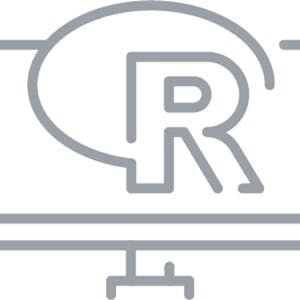This course, offered by Google, is the seventh in the Google Data Analytics Certificate. It provides a comprehensive introduction to using the R programming language for data analysis. Throughout the course, learners will explore the fundamental concepts associated with programming in R and gain an understanding of the basic formatting of R Markdown for documentation. The course covers the programming environment, RStudio, and delves into the unique software applications and tools specific to R, such as R packages and the Tidyverse package. Learners will also discover how to clean, organize, analyze, visualize, and report data in new and more powerful ways using R.
By the end of the course, learners will be equipped to describe the R programming language and its programming environment, explain fundamental programming concepts in R, generate visualizations, and demonstrate an understanding of R Markdown for creating structured documentation.
Certificate Available ✔
Get Started / More Info
This course is divided into five modules that cover a range of topics, including programming and data analytics, programming using RStudio, working with data in R, visualizations, aesthetics, and annotations, and documentation and reports. The modules provide hands-on activities and challenges to reinforce learning.
Module 1 introduces learners to the exciting world of programming and provides an overview of R and RStudio. Learners will explore programming languages, the R-versus-Python debate, and ways to learn about programming. The module also covers the installation and use of R and RStudio, as well as hands-on activities to reinforce learning.
Module 2 delves into programming using RStudio, covering programming fundamentals, operators, vectors, lists, and other common data structures. Learners will also explore working with pipes, tidyverse, and R packages, with hands-on activities to practice coding in RStudio and using tidyverse for data analysis.
Module 3 focuses on working with data in R, covering data frames, cleaning and organizing data, transforming data, and data-import basics. Learners will gain practical experience through hands-on activities, including creating and working with data frames, cleaning and transforming data, and comparing data cleaning on different platforms.
Module 4 explores visualizations in R, aesthetics, and annotations, providing an in-depth understanding of generating visualizations using ggplot and enhancing visualizations in R. Learners will also practice creating visualizations, working with aesthetics and filters, and adding annotations to visualizations.
Module 5 focuses on documentation and reports, covering R Markdown, structure of markdown documents, code chunks, and exporting documentation. Learners will be able to create their own R Markdown notebook, add code chunks, and export the notebook, gaining practical skills in documenting and reporting using R.
Applied Data Science with Python introduces learners to data science through the python programming language, covering statistical analysis, machine learning, information...
Enhance your predictive and statistical modeling skills with the SAS Statistical Business Analyst program.
Introduction to Data Analytics for Business is a comprehensive course that provides a strong foundation in data analytics practices, from the information lifecycle...
Learn how to use SQL Mathematical Functions to manipulate tables in a database in this 2-hour project-based course.